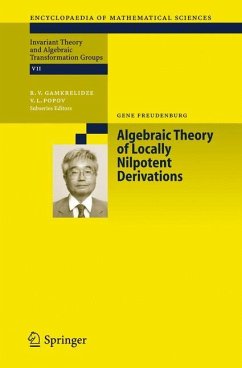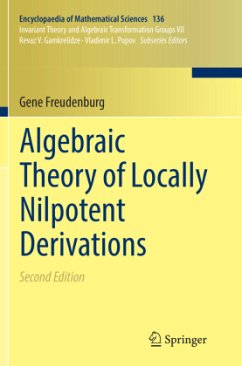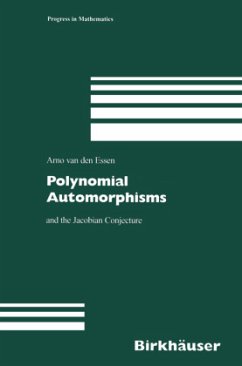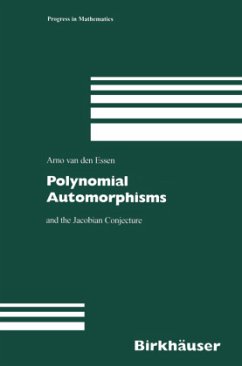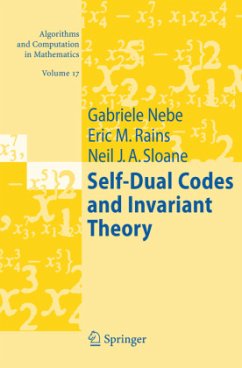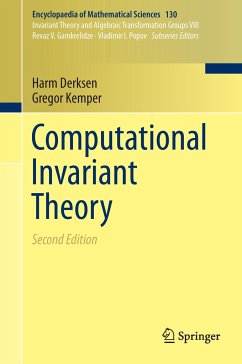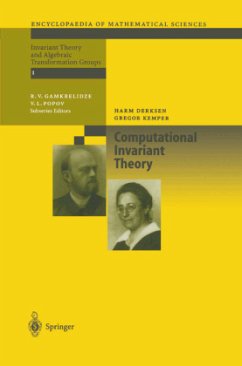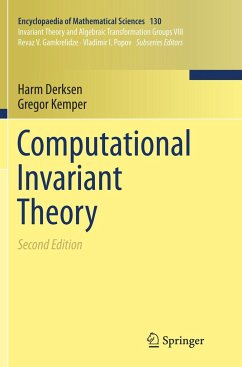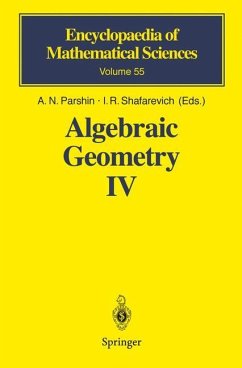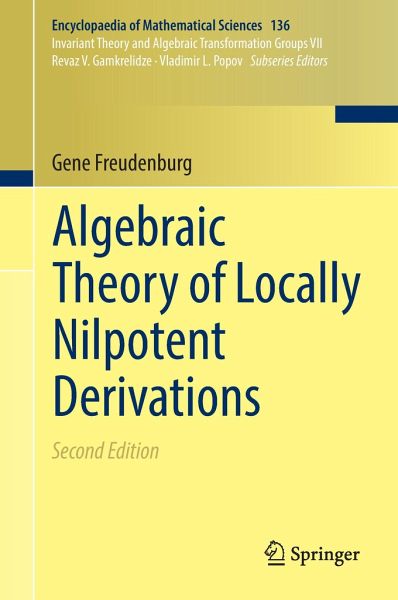
Algebraic Theory of Locally Nilpotent Derivations
Versandkostenfrei!
Versandfertig in 6-10 Tagen
113,99 €
inkl. MwSt.
Weitere Ausgaben:

PAYBACK Punkte
57 °P sammeln!
This book explores the theory and application of locally nilpotent derivations, a subject motivated by questions in affine algebraic geometry and having fundamental connections to areas such as commutative algebra, representation theory, Lie algebras and differential equations.The author provides a unified treatment of the subject, beginning with 16 First Principles on which the theory is based. These are used to establish classical results, such as Rentschler's Theorem for the plane and the Cancellation Theorem for Curves.More recent results, such as Makar-Limanov's theorem for locally nilpot...
This book explores the theory and application of locally nilpotent derivations, a subject motivated by questions in affine algebraic geometry and having fundamental connections to areas such as commutative algebra, representation theory, Lie algebras and differential equations.
The author provides a unified treatment of the subject, beginning with 16 First Principles on which the theory is based. These are used to establish classical results, such as Rentschler's Theorem for the plane and the Cancellation Theorem for Curves.
More recent results, such as Makar-Limanov's theorem for locally nilpotent derivations of polynomial rings, are also discussed. Topics of special interest include progress in classifying additive actions on three-dimensional affine space, finiteness questions (Hilbert's 14th Problem), algorithms, the Makar-Limanov invariant, and connections to the Cancellation Problem and the Embedding Problem.
A lot of new material is included in this expanded second edition, such as canonical factorization of quotient morphisms, and a more extended treatment of linear actions. The reader will also find a wealth of examples and open problems and an updated resource for future investigations.
The author provides a unified treatment of the subject, beginning with 16 First Principles on which the theory is based. These are used to establish classical results, such as Rentschler's Theorem for the plane and the Cancellation Theorem for Curves.
More recent results, such as Makar-Limanov's theorem for locally nilpotent derivations of polynomial rings, are also discussed. Topics of special interest include progress in classifying additive actions on three-dimensional affine space, finiteness questions (Hilbert's 14th Problem), algorithms, the Makar-Limanov invariant, and connections to the Cancellation Problem and the Embedding Problem.
A lot of new material is included in this expanded second edition, such as canonical factorization of quotient morphisms, and a more extended treatment of linear actions. The reader will also find a wealth of examples and open problems and an updated resource for future investigations.



